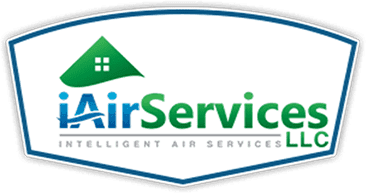The Importance of Indoor Air Quality and the Effects of Carbon Dioxide
When it comes to pollutants in the air, we typically think of outdoor pollution and don’t pay as much attention to the common indoor air pollutants that we’re breathing in every day. Indoor air quality is just as important to our health, considering it’s the air we’re breathing inside our own homes. If you or someone you live with struggles with allergies, sinus issues, or asthma, pristine indoor air quality is vital for your health.
Since it’s out of sight and out of mind, many homeowners also ignore the levels of carbon dioxide in their houses. Due to the fact that carbon dioxide is a colorless and odorless gas, it’s easy to forget about. In this blog, you’ll learn more about how carbon dioxide can affect indoor air quality as well as how you can improve the indoor air quality in your home.
Carbon Dioxide and Your Health
While carbon dioxide poisoning is very rare, you still want to avoid high levels of the gas as it can cause headaches, fatigue, and dizziness. Carbon dioxide levels are elevated when there is insufficient ventilation in a space, meaning there is a lack of fresh air circulating. To describe in a bit more detail the different levels of carbon dioxide, we’ve included a breakdown below:
- 1,000 – 2,000 ppm: this level indicates poor air quality and drowsiness is often associated with these numbers
- 2,000 – 5,000 ppm: this level of carbon dioxide can cause more serious symptoms of headaches, attention loss, and nausea
- 5,000 ppm and above: this level is quite dangerous and can lead to oxygen deprivation
Overall, if a carbon dioxide level is above 1,000 ppm, there could be a potential problem with fresh air circulating a space. Any ppm level below 1,000 is typical for a house or space with good air ventilation.
Improving Your Indoor Air Quality
Now that you know a bit more about why indoor air quality is so important for your everyday health and how carbon dioxide levels work, we want to share a few ways you can improve your own home’s indoor air quality.
INDOOR PLANTS
Believe it or not, one of the simplest ways to improve your home’s indoor air quality is by adding a few indoor plants to your space! Not only do they add to the decor of your house, but plants are a natural air filter.
Pro tip: Ferns and lilies are great for pulling pollutants out of the air.
CHECK YOUR DUCTWORK
Dirty air ducts will distribute dust, debris, and any other contaminant that has accumulated over time. Since air ducts are responsible for circulating air throughout your home, if there is any dander or mold growth in your ducts, this will be distributed through the ducts and contaminate the air you breathe inside.
TURN ON KITCHEN VENTS WHILE COOKING
Whether you have a gas or electric stove, both types can release harmful contaminants when in use. So, for your next family dinner, turn on the cooking vents or crack open a window to let some fresh air circulate.
REPLACE AC FILTER
Dirty air filters cause your HVAC system to overwork itself, meaning your AC is wasting energy and causing your utility bills to increase. AC filters collect dust and other particles so that your system can distribute fresh air, but eventually, the filters will trap enough debris that it fully clogs the filter. It’s vital to change your air filters regularly to eliminate the pollutants spreading throughout your home.
VACUUM
Rugs, carpets, and furniture collect contaminants like dust, hair, and pet dander that can trigger symptoms of those with allergies and asthma. Make sweeping and vacuuming part of your regular cleaning routine to reduce the build up of these common indoor pollutants.
INDOOR AIR QUALITY SERVICES IN AUSTIN
As our AC systems kick into full gear this summer, we want to ensure you have the highest indoor air quality possible inside your home. At Intelligent Air Services, LLC, we’re committed to providing the best solutions for your home. Whether you need a dehumidifier, air purifier, or new air filters, we have your back. Call us today at (512) 675-6997 to learn more about our indoor air quality services!
